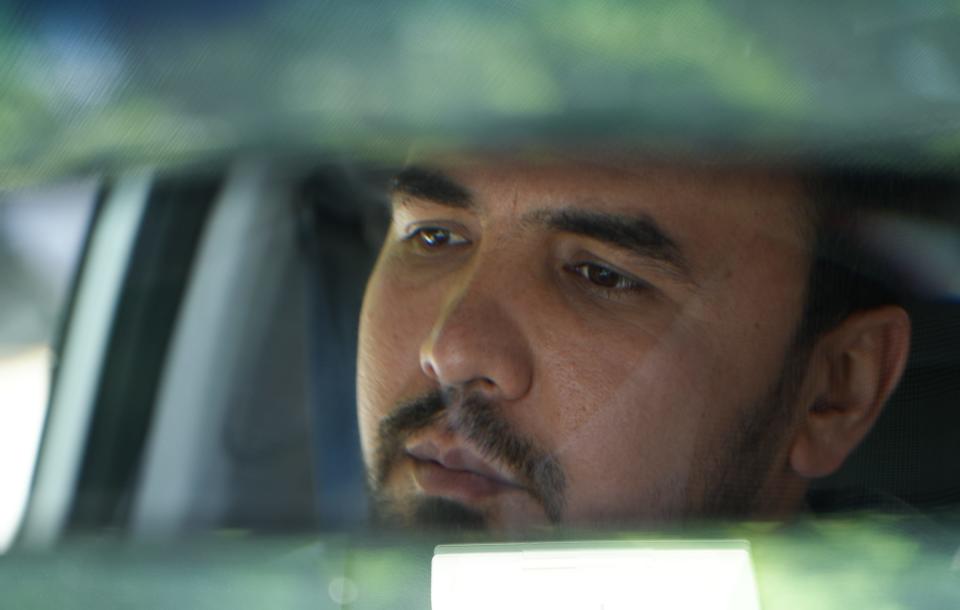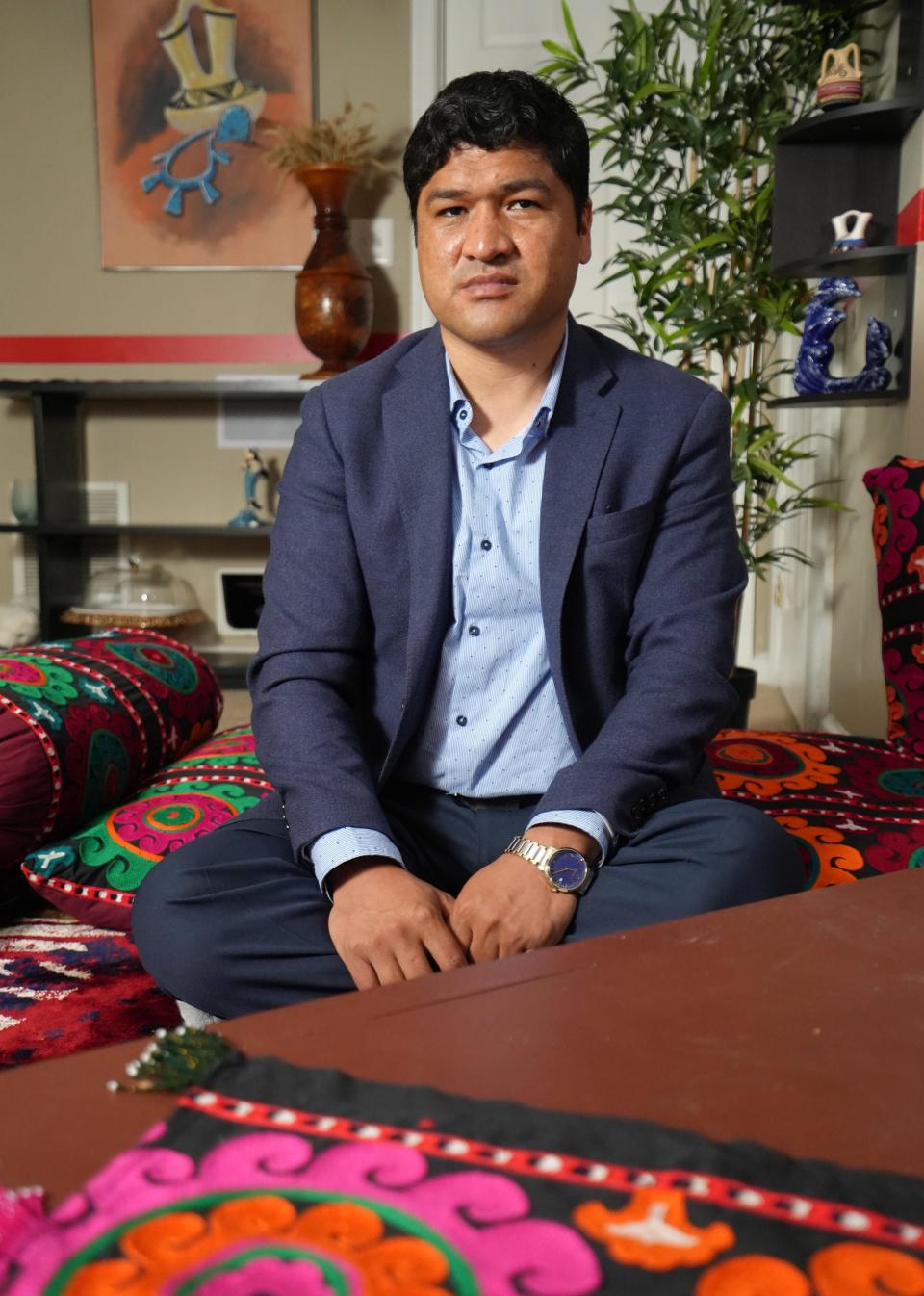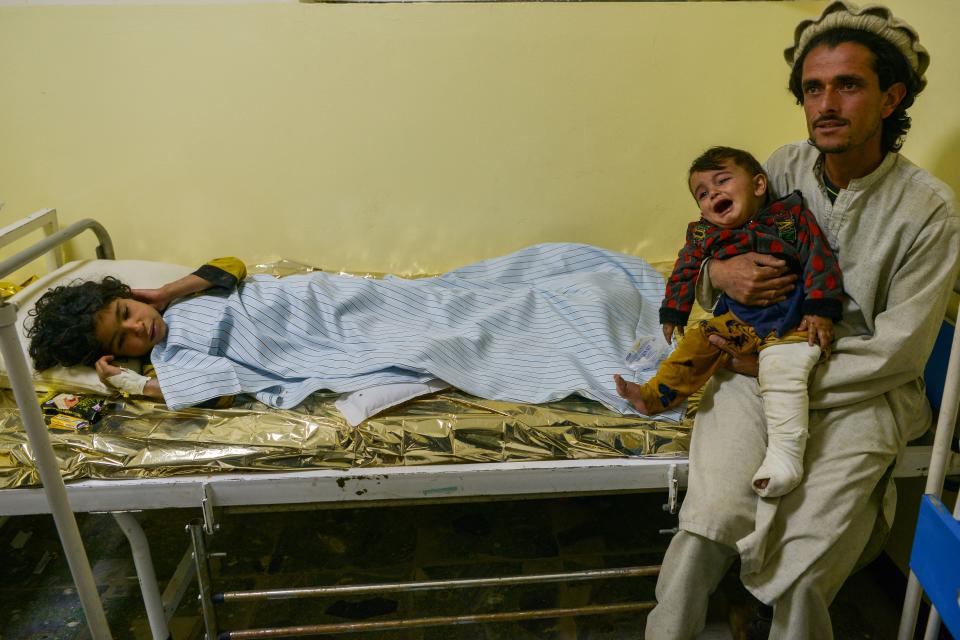'I cannot pretend to be OK': Afghan refugees torn between new lives in US and haunting reality of home
When Taliban fighters waltzed into the Afghan capital of Kabul last year, Homeira Qaderi knew she would have to flee her homeland. She wasn’t a high-profile democracy advocate or working for a Western-backed institution.
She was a single mom who had written a book about life under the Taliban, a critical account of the militant Islamic group back in power after the U.S. military withdrew. Qaderi used her contacts abroad to get herself and her 8-year-old son on an evacuation list.
As a member of Afghanistan’s educated middle class, Qaderi arrived in the USA aiming to build a life here as a writer and educator.
But she has not flourished.
Like many other Afghan refugees, she is torn between opportunities in the USA and the horrors she left behind.
“Physically, I am here, but mentally, I am still in Afghanistan,” she said. “My days start with my mother’s tears and the problems my family is going through. It starts with news of explosions and bloodshed in Afghanistan. I am not OK, and I cannot pretend to be OK.”
After the collapse of Afghanistan, the U.S. government evacuated more than 76,000 Afghans, including many high-level former government officials who wielded power and privilege. Many struggle to start lives from scratch in the USA. Learning a new language and adjusting to a new culture, they feel the constant pull of Afghanistan, where the economy is in freefall and life under the Taliban’s rule is dangerous.
Staying could mean death: The escape nearly killed her. How one woman fled Afghanistan for freedom.
FARSI TRANSLATION:Read the account of this reporter's flight from Afghanistan in Farsi
Six months after her evacuation, Qaderi’s brother, Khalid, a reporter and producer of cultural programs for Radio Nowruz, was detained by the Taliban in Herat. For a week, his family did not know where he had been taken. They learned Khalid had been sentenced to a year in prison on charges that included espionage, working for a foreign media outlet and spreading anti-regime propaganda.

Qaderi has written many children’s books. Her family – her father in particular – feared that her most recent book, “Dancing in the Mosque: An Afghan Mother's Letter to Her Son,” would make her a target. The 224-page book is about the injustice that Afghan women experience in a patriarchal and misogynistic society. Qaderi’s husband divorced her, and she was separated from her only son, Siawash.
“My book has nothing to do with Islam, but because of its title, I received messages from many people, including my own family, asking me to leave before I get spotted by the Taliban,” Qaderi said.
'Egregiously mishandled' or inevitably 'messy'? What went wrong in US withdrawal from Afghanistan
For her, writing is the only way of healing and surviving. She is on a fellowship at Harvard University, working on another book. Qaderi is often invited to events as a guest speaker, but for the sake of her family’s safety, she tries to keep a low profile.
'Driving helps me stay calm'
Since the Taliban`s takeover of Afghanistan, more than 100 former government employees, security guards and individuals who worked with U.S. or other foreign militaries have been killed by the militant group, according to United Nations Secretary-General Antonio Guterres. Despite the Taliban’s promise of general amnesty for those affiliated with the former government and U.S.-led coalition forces, they conducted house-to-house searches for individuals and relatives affiliated with foreigners or the former government – randomly detaining and, in many cases, killing them.
Najibullah Amini's friends and family are among those at risk. He was a pilot with the Afghan air force’s special mission wing who left Afghanistan on Aug. 15, fleeing to Uzbekistan, then to the USA.
He works as a forklift driver in a warehouse in the suburbs of Chicago. “As a pilot, I was trained in the Czech Republic and Slovakia, and in Kabul, I worked with the U.S. forces. The Afghan government and the foreign allies invested in me to become a professional in my field,” Amini said. “I have knowledge and experience in flying over mountainous and warzone areas.”
Devastated by drought and economic turmoil: Many in Afghanistan near starvation
'They are looking for us to kill us': Hiding from Taliban, Afghans who helped US struggle to escape

On the day Kabul fell, he and his fellow service members commandeered dozens of Black Hawk helicopters and escaped to Uzbekistan. He’s disappointed he can’t find work as a pilot.
Amini asked the U.S. government to help Afghan evacuees with vocational training and provide them with job opportunities in their fields.
Shah Khan Sherzad, a former member of Afghanistan’s parliament, settled with his family in Virginia, where he works as a Lyft driver.
The collapse of Afghanistan shocked Sherzad. For four days, he waited at his house in Kabul, monitoring the unfolding situation. As he received updates from friends and colleagues about the Taliban torturing former government employees, he decided to flee with his wife and two children Aug. 19.
He spends most of his days taking passengers from one place to another.
“Driving helps me to focus and stay calm,” he said.
“I put efforts towards stabilizing my life. Whether big or small, a high-paying or a low-paying (job), I am thankful to God for being able to work,” Sherzad said.
Passengers often ask him where is he from, and Sherzad tells them about Afghanistan. “It’s part of my destiny and fate to be here today,” he said.
'Everything is new to me in the US'
Mahdi Rasikh, another former Afghan member of parliament, who was evacuated from Afghanistan eight months ago, lives in Maryland, thousands of miles from his home and his relatives.
His constituents back in Afghanistan expect the former lawmaker to remember them. He hasn’t applied for a job here because he’s too consumed with trying to help Afghans who did not flee get access to humanitarian assistance, education and health care.
Rasikh said his heart is still with his people in Afghanistan. As soon as he wakes up and has breakfast, he starts calling, talking and meeting with people.

“I receive hundreds of messages on daily basis from my people in Afghanistan who ask me to keep pushing,” Rasikh said.
“We cannot go back to Afghanistan and cannot live elsewhere. Thinking of the U.S., it's a great opportunity to continue my activities and work towards a change in Afghanistan. This is our responsibility,” Rasikh said.
'No possible life' under Taliban rule: Afghan women fear murder, oppression after US withdrawal
He has traveled around the country to meet with other Afghan refugees, particularly those of the Hazara ethnicity. Rasikh said his mission is to create a sense of unity and solidarity among Hazaras in the USA to channel toward improving the outlook in Afghanistan.
Hazaras have long been persecuted in Afghanistan.
“We should have a plan for the future of the country and our people,” Rasikh said.
In his spare time, Rasikh learns English and reads about American culture and customs.
“Everything is new to me in the U.S.,” he told USA TODAY. “I still feel like there are many things that I must learn, starting from their ceremonies to their social policies. I believe that slowly and gradually, I will get adjusted and familiar with everything.”

Waiting for the chance to return
Sherzad said he and his family have not faced many challenges in adjusting to the new culture and language. That’s partly because he was nearly fluent and his job as a Lyft driver puts him in direct contact with so many Americans. His daughter, Maryam, 8, has been improving her English and absorbing elements of American life.
He said they recently went out for dinner and he asked his daughter about a word on the menu that he didn’t understand.
“She told me that's a crab and we cannot eat it,” he recounted.
“Maryam loves her school and every day she spends around 15-20 minutes talking to us about her friends and what she does at school. She has been a great help to us, especially in terms of English vocabulary and speaking,” Sherzad added.
Sherzad is helping his wife search for a job. She has a bachelor’s degree but did not work outside the home when they lived in Kabul because of safety issues. Those concerns have faded in the U.S., giving her a chance to learn English and improve her computer skills.
Despite all these adjustments, Sherzad cannot imagine a long-term future for him in the U.S. He is looking for a chance to return to Afghanistan one day, and serve his people and his country.
“There's a poem from one of our poets saying, ‘This is a beautiful house, but it's not ours’,” he said. “Everything is good here in the U.S., but I was born in Afghanistan and I worked there. I was connected to people of different ethnicities and harmonized with them. I am waiting for the opportunity to come so that I could return and serve my people."
‘Where we belong’: Bond forged in war brings Afghan commando's family to Pennsylvania
A timeline of the US withdrawal and Taliban recapture of Afghanistan
This article originally appeared on USA TODAY: Afghan refugees, still haunted by Taliban takeover, rebuild life in US

